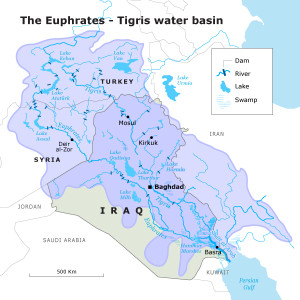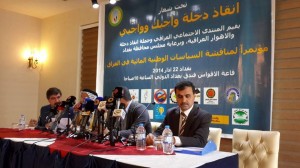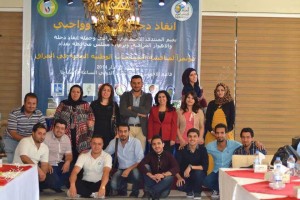Last week I was speaking in Oslo at the Ecological Challenges Conference in a panel titled: "New Movements, New Possibilities." The conference gathered academics and activists from around the world to exchange ideas between academics doing research on ecology and the environment and activists doing work on the ground. It was a great opportunity to present the work of the Save the Tigris Campaign and to present new and emerging environmental movements in the Middle East.
Here is my intervention on the panel that I shared with Dan Chodorkoff, Havin Güneser and Mark Luccarelli:
"Ecology, democracy, participation, climate and movements. These are themes that emerged during the weekend at this conference. yesterday, I tales about ecological movements in the Middle East, and I spoke about the case of the Iraqii Marshe and the campaign to protect the Tigris and I couldn't speak about that without speaking about solidarity.
In our campaign we focus on the protection of the Iraqi Marshes form development projects like Ilisu dam, which is also tied to the protection of water resources, culture and people. In Turkey, the dam will destroy ancient history of the Kurds and will flood thousands of years of civilisation. That is why we have built solidarity networks with Kurdish/Turkish activists. We have joined because we have a common fight. The dam not only challenges ecology but also democracy. It's being built without consultation with local communities, let alone communities in Iraq that will be affected.
Turkey is trying to consolidate regional power by using water, and in doing so it is appropriating resources that are shared.
In building new movements the role of solidarity is key, as it strengthens local struggles and empower communities when they see that they are not alone. For example, we have been at the Ilisu dam site protesting with locals who otherwise are called terrorists because Turkey considers the dam an national security issue.
In Iraq new democratic and civil platforms are developing that are also built in the principle of solidarity like the Iraqi Social FOrum. It is exactly one year since we were in Baghdad with a delegation of international activists at the Iraqi Social Forum. I see hope for new movements in young activists that want to build change in their country and the North-South cooperation and solidarity is a direct way od supporting the emergence of new movements in the South. There are challenges and it is a long term commitment but we are ale irresponsible to support those who are fighting in more difficult, and less democratic countries."











